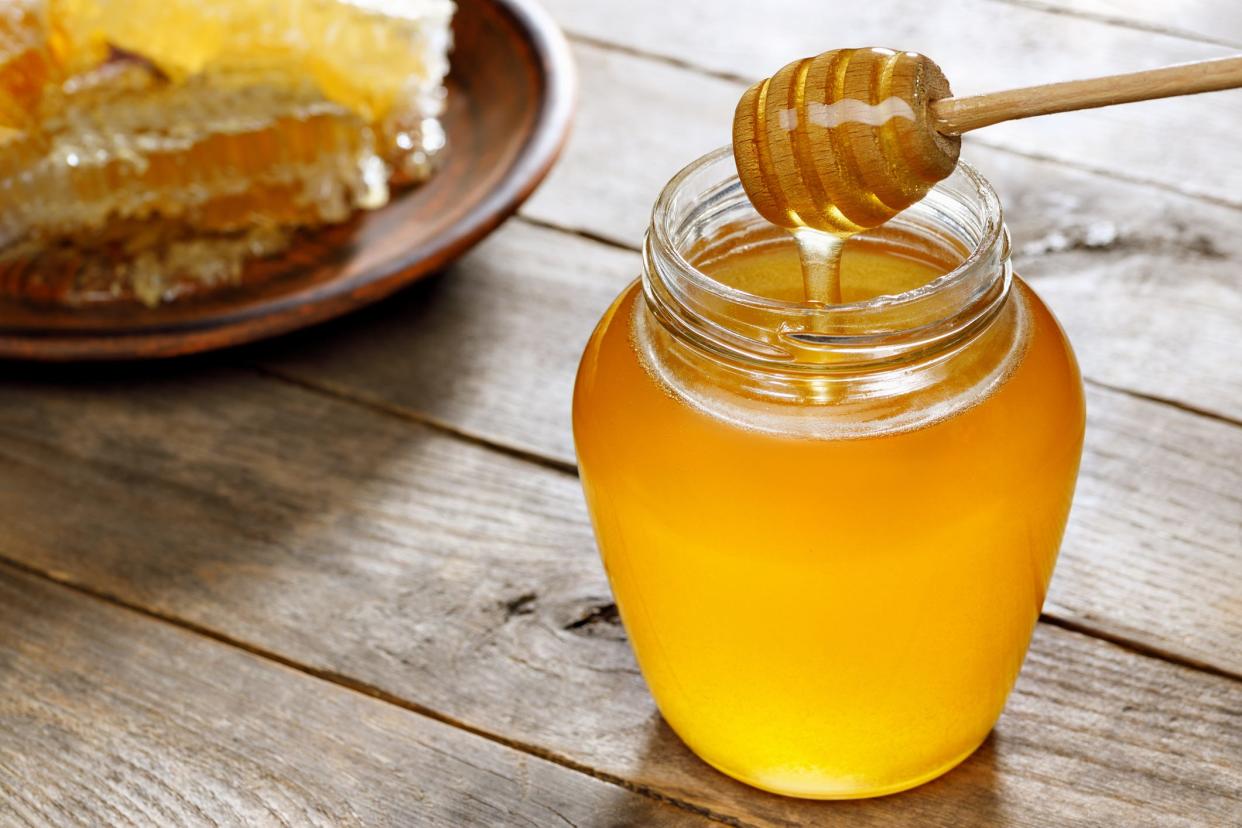Krista Stevens: Did you know honey has the potential to help alleviate allergy symptoms?

Eating local bee honey is a practice that brings a sweet array of benefits, from environmental sustainability to personal health improvements.
This natural sweetener has been a staple in human diets for centuries, but its local varieties hold unique advantages, particularly when it comes to managing allergies and enhancing overall wellness.
A natural remedy for allergies
One of the most intriguing benefits of consuming local honey is its potential to alleviate allergy symptoms.
The theory posits that local honey, which contains pollen spores picked up by bees from local plants, can act as a natural vaccine.
By introducing small quantities of allergens into your system, your body can potentially become desensitized to the pollen in your area, thus reducing allergy symptoms.
A study published in the International Archives of Allergy and Immunology found that patients who consumed birch pollen honey had a 60% reduction in symptoms and used 50% fewer antihistamines compared to the control group, suggesting that local honey could indeed have a desensitizing effect.
Krista's previous three columns:
A better year: Try these seven suggestions to kickstart healthier lifestyles in 2024
Good times: Making cookies, listening to music, visiting family are holiday mental boosters
Dulcet tones: Do you know how beneficial listening to music is? Read on and find out

Health benefits beyond allergies
Beyond allergies, local honey boasts a plethora of health benefits.
It's packed with antioxidants, including phenolic compounds like flavonoids, which are linked to reduced risk of heart disease.
Honey's antioxidant properties can help to improve cholesterol levels, lower triglycerides and even provide modest reductions in blood pressure, contributing to overall cardiovascular health.
Honey also offers antibacterial and antifungal properties, thanks to its natural hydrogen peroxide content.
This makes it an excellent remedy for wounds and infections.
Furthermore, it's a humectant, which means it can moisturize and soothe the skin when applied topically.
For those looking to maintain a healthy glycemic index, honey can be a better alternative to refined sugars.
Though it should still be consumed in moderation, its lower GI value means it doesn’t spike blood sugar levels as sharply as white sugar does.
Where to find local honey
So, where can one find this golden elixir?
Farmers markets are a great starting point. These community gatherings are not only a hotspot for fresh, local produce but also for honey that’s harvested by local beekeepers.
By purchasing honey here, you’re directly supporting local agriculture and ensuring you get a product that’s truly from your area.
Health food stores and co-ops often stock local honey, too.
These establishments prioritize sourcing products from local producers, so you’re likely to find several options.
Additionally, many local beekeepers sell their honey directly to consumers, either through their websites, at farm stands, or even through social media platforms.
For those who want to dive deeper into the source, visiting a local apiary can be an enlightening experience.
Many beekeepers offer tours of their operations and sell their honey on-site. This not only allows you to purchase honey but also to see firsthand how it's produced, offering a deeper appreciation for the product.
Sustainability and supporting local economies
Choosing local honey also has broader benefits for the environment and local economies.
By supporting local beekeepers, you’re contributing to the sustainability of bee populations, which are crucial for pollinating crops.
Bees play a vital role in the ecosystem, and their decline in recent years has been a cause for concern.
Local beekeepers are often at the forefront of efforts to protect and sustain bee populations.
Moreover, buying local honey helps to bolster local economies. Money spent on local products circulates within the community, supporting jobs and contributing to the economic health of the area.
It reduces the carbon footprint associated with transporting goods over long distances, making it a more environmentally friendly choice.
A Word of caution
While local honey offers many benefits, it’s important to consume it responsibly.
Honey is still a form of sugar, and excessive consumption can contribute to health issues such as weight gain and tooth decay.
Additionally, those with severe allergies should proceed with caution and consult with a healthcare provider before trying local honey as a remedy, as it can contain allergens that might trigger reactions in some individuals.
Conclusion
Incorporating local bee honey into your diet is more than just a way to sweeten your tea; it's a step toward improved health, support for local ecosystems and economic sustainability.
Whether you're seeking relief from seasonal allergies or simply aiming to adopt a healthier lifestyle, the benefits of local honey are as rich and varied as its taste.
By choosing local, you're not only nurturing your own health but also contributing to the well-being of your community and the environment.
So next time you're sweetening your morning oatmeal or drizzling honey over your yogurt, consider reaching for a jar of local honey. It’s a small change that can make a big difference.
Krista Stevens in a graduate of the University of Florida. To find out more, see:
TikTok: https://www.tiktok.com/@kristastevens?lang=en
Instagram: https://www.instagram.com/krista.stevenss/?hl=en
Got questions? Contact Krista at Kristastevensemail@gmail.com
This article originally appeared on Florida Today: Winnie the Pooh was right! Honey is delicious and has many benefits
